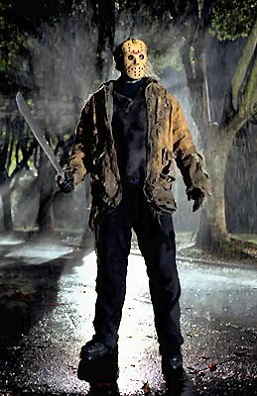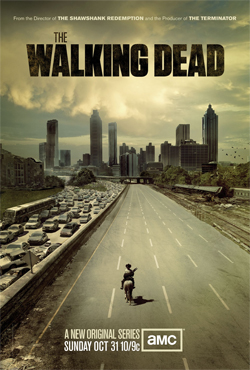Paraskevidekatriaphobia is the fear of Friday the 13th, and this evening, I had my weird Friday the 13th experience.
I was on my way home from dropping off my daughter at her school dance. As I was turning a corner I saw for a brief flash in my rearview mirror the image of a ghastly woman as if she was sitting in my back seat. She had a sort of bluish illumination with two dark eyes with blackened mascara-like smears running down her face. Nothing too original, but it did cause me a split second’s release of adrenaline. The best part is that I know exactly what I saw and why.

For uncertain reasons in the Western world and especially the United States when the 13th of the month falls on a Friday it is believed to be an unlucky day.
I grew up with this superstition and believed in it to whatever degree young children can believe in anything they have no ability to understand and no reason to believe other than the influence of their peers. The fact that I was a very young child at the beginnings of the extremely successful Friday the 13th movie franchise has shaded my view of the event in a particular light for me.

I’m not unique in this, these days Americans particularly see Friday the 13th as a scary and dark day, a sort of reverse holiday similar to Halloween without the costumes or trick-or-treating. It comes with its own myths and urban legends. Much like the Santa Claus at Christmas of the Easter Bunny in spring, the murderous hockey mask clad and machete wielding zombie Jason Vorheese from the Friday the 13th movies is and for a long time to come will be in the future attached to this spooky unholiday. This really is a testament more to the quality of the marketing of the franchise than the quality of the movies themselves that even as I child I found to be more funny than frightening, but I still love them. Jason lives in mythology alongside classic legendary supernatural evils like the Headless Horseman, Dracula, or Frankenstein.
There’s a fair amount of speculation regarding the origin of the Friday the 13th superstition, but no one really knows for sure. The number 13 has been considered an unlucky number for hundreds of years. This is so prevalent that most hotels do not even host a 13th floor. The numbers on an elevator will often go straight from 12 to 14 because many people are afraid to rent a room on the 13th floor. It might seem crazy, but it’s true.
The superstition of 13 being bad luck seems to have arisen during the middle ages and is assumed to have come from the story of the arrest of Jesus after the Last Supper when He and His twelve apostles were present equaling thirteen. Similarly, the fact Jesus was crucified on the following day; Friday made that day a particularly infamous part of the week, one which Catholics and Orthodox Christians still consider a day of fasting. These two beliefs combined seem to be the origin of the superstition; two unlucky points occurring at once although the origins of Friday the 13th being especially unlucky didn’t seem to arise until the 19th century.
In the 20th century authors such as Maurice Druon in his novel Le Roi de fer (1955), and John J. Robinson in his book Born in Blood: The Lost Secrets of Freemasonry (1989) postulated a connection between this superstition and the day on which the Knights Templar were arrested on charges of heresy by King Philip the IV of France, Friday the 13th of October 1307. This was echoed in Dan Brown’s The Da Vinci Code (2003), and other books, memes and papers since then. Although this is one of my favorite hypotheses, the evidence to support this being the origin of the superstition is dubious at best. It’s more likely a combination of reasons.
In my car, as quickly as the ghastly woman had appeared in my rearview mirror she was gone, but I could still see the impression of her eyes. They were spots of dirt with what appeared to be smeared finger print running down the glass. As I was turning the corner the setting sun passed directly behind me for just a brief moment. The sun’s rays reflected off of the mirror in a manner framing the fingerprints in a glow and accentuating the smudges. Then my lizard brain took over and assembled this into an image I could make sense out of based on the fact I’ve been thinking about Friday the 13th and creepy stuff all day. When my daughter gets home from her dance we plan on watching some scary movies.
Human psychology is such a fascinating subject.


